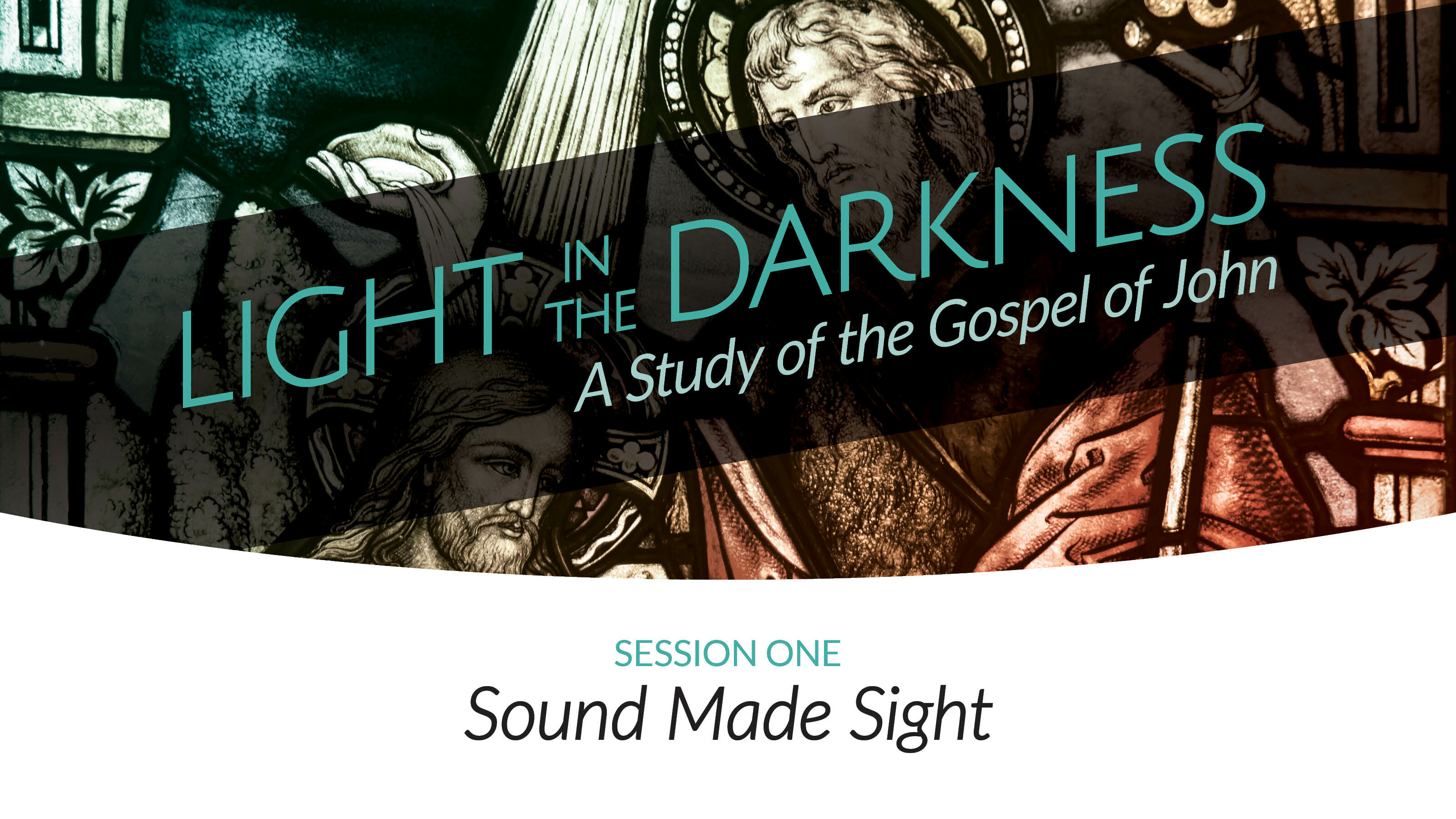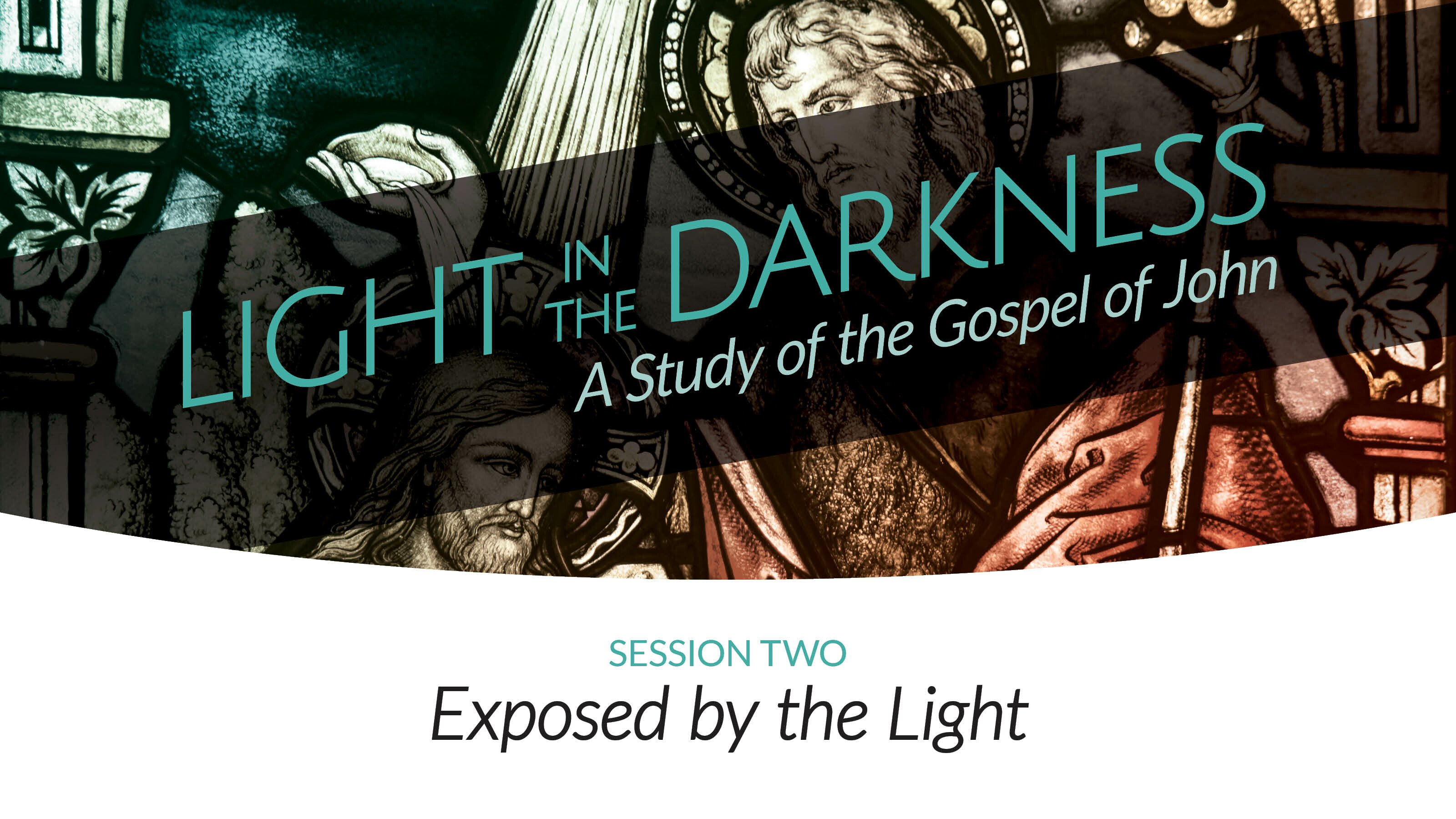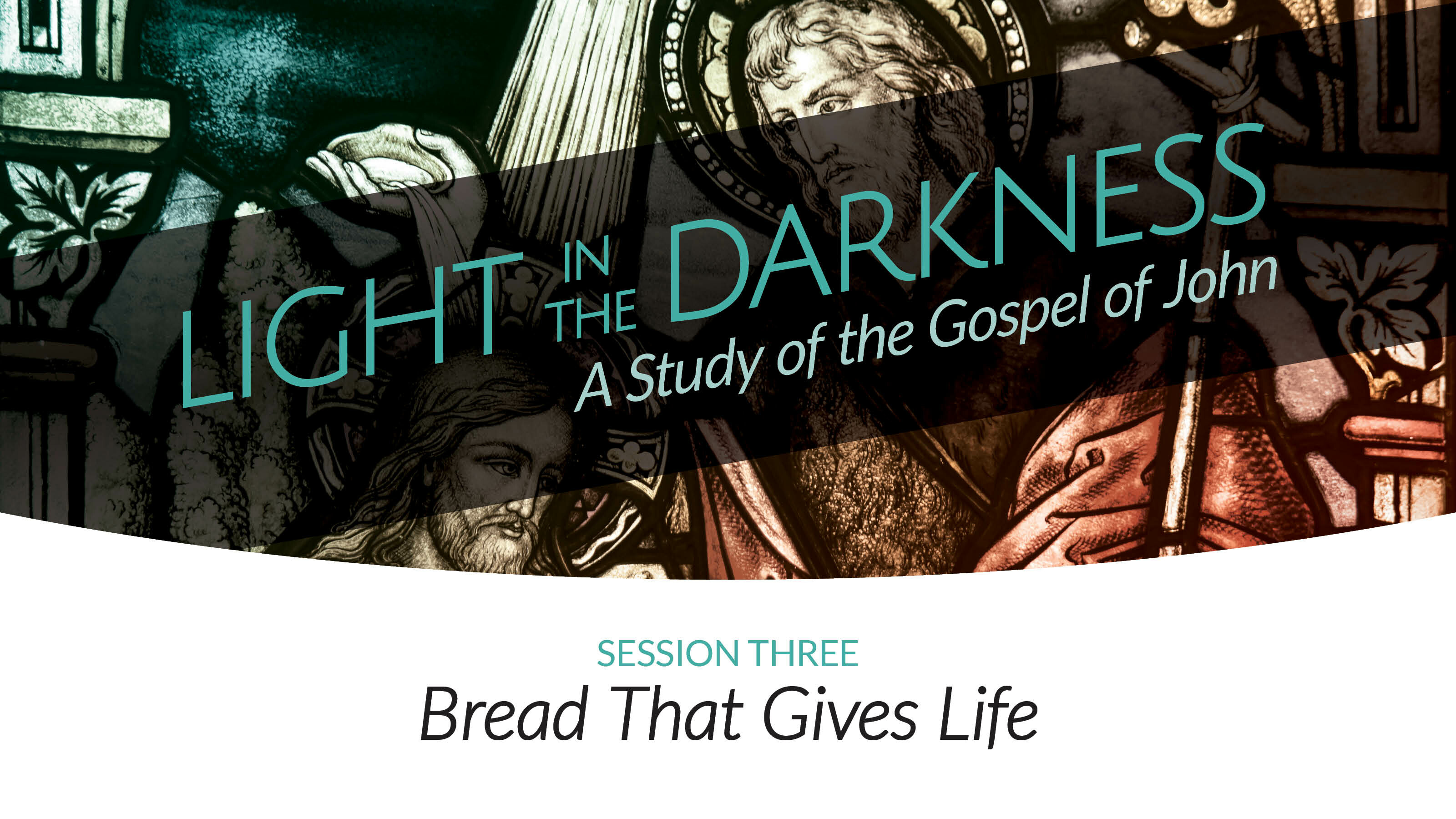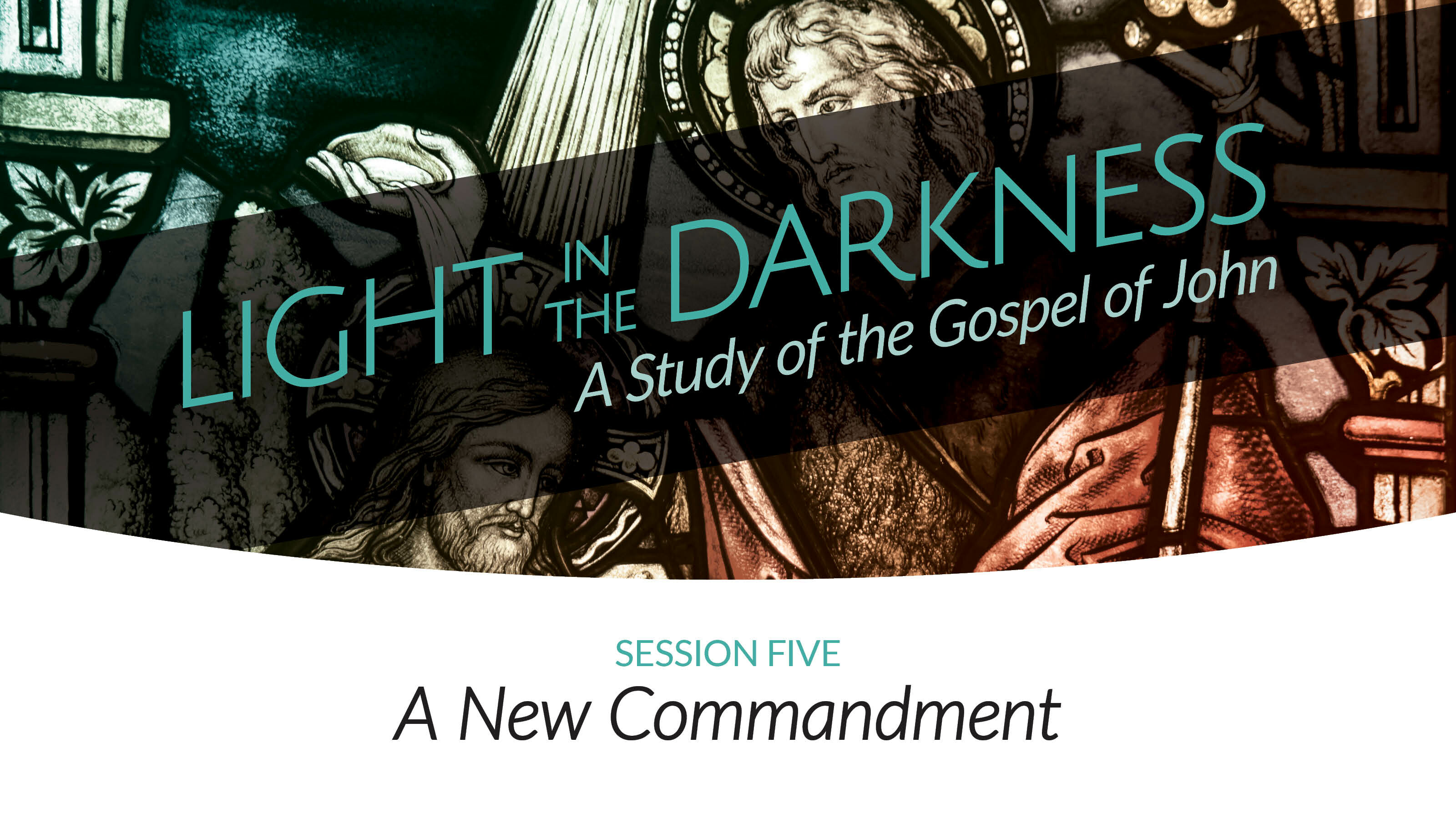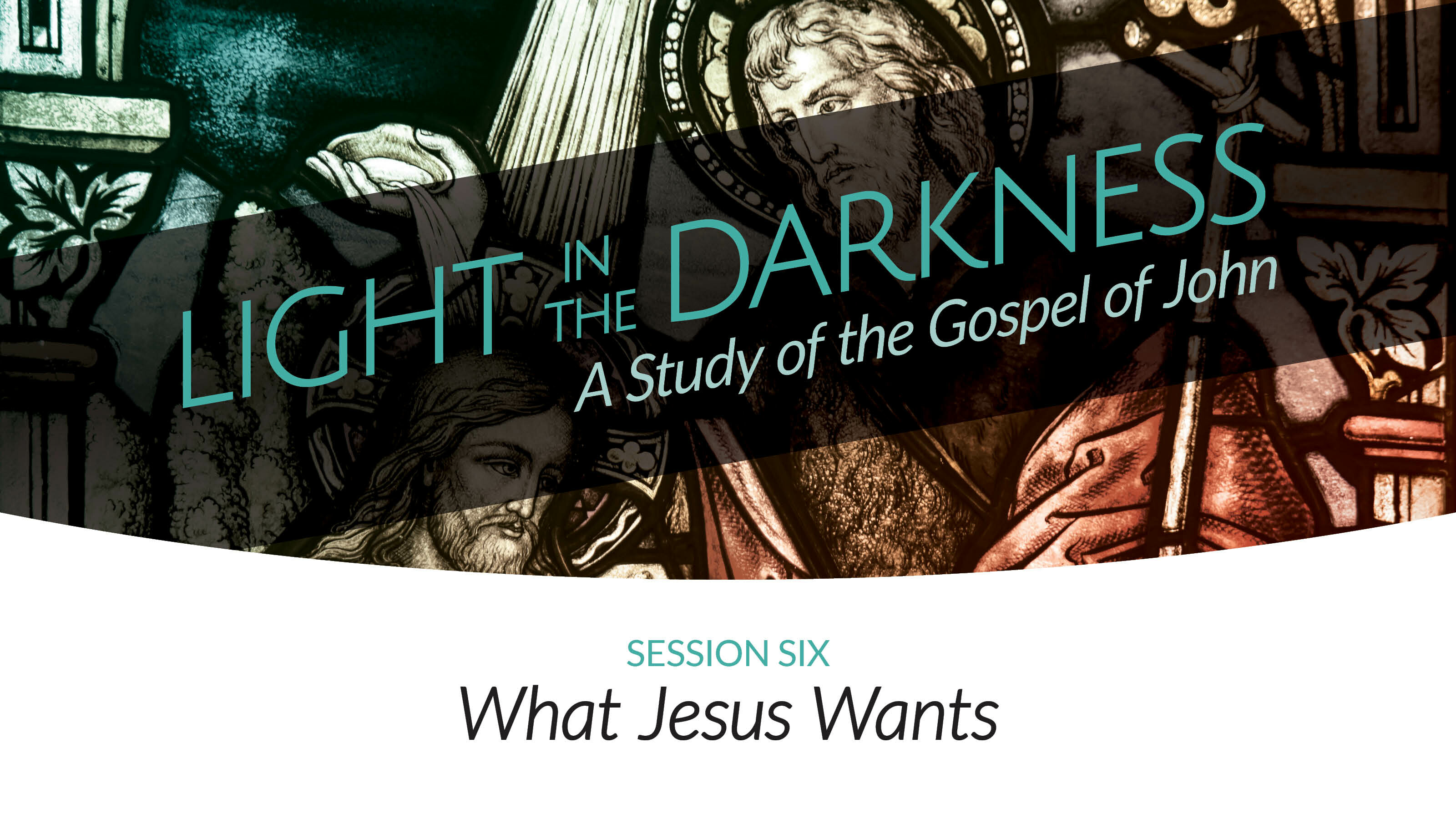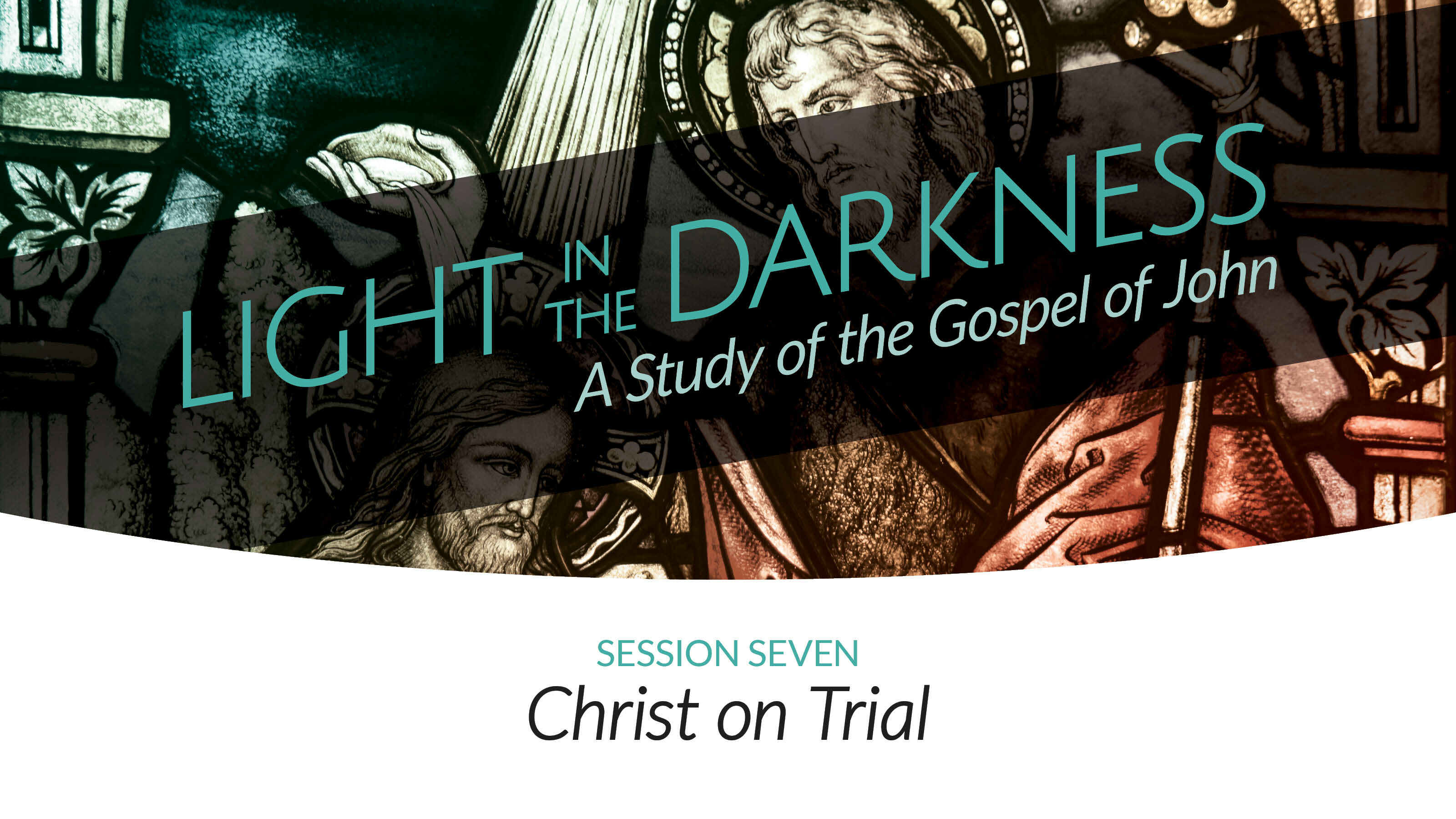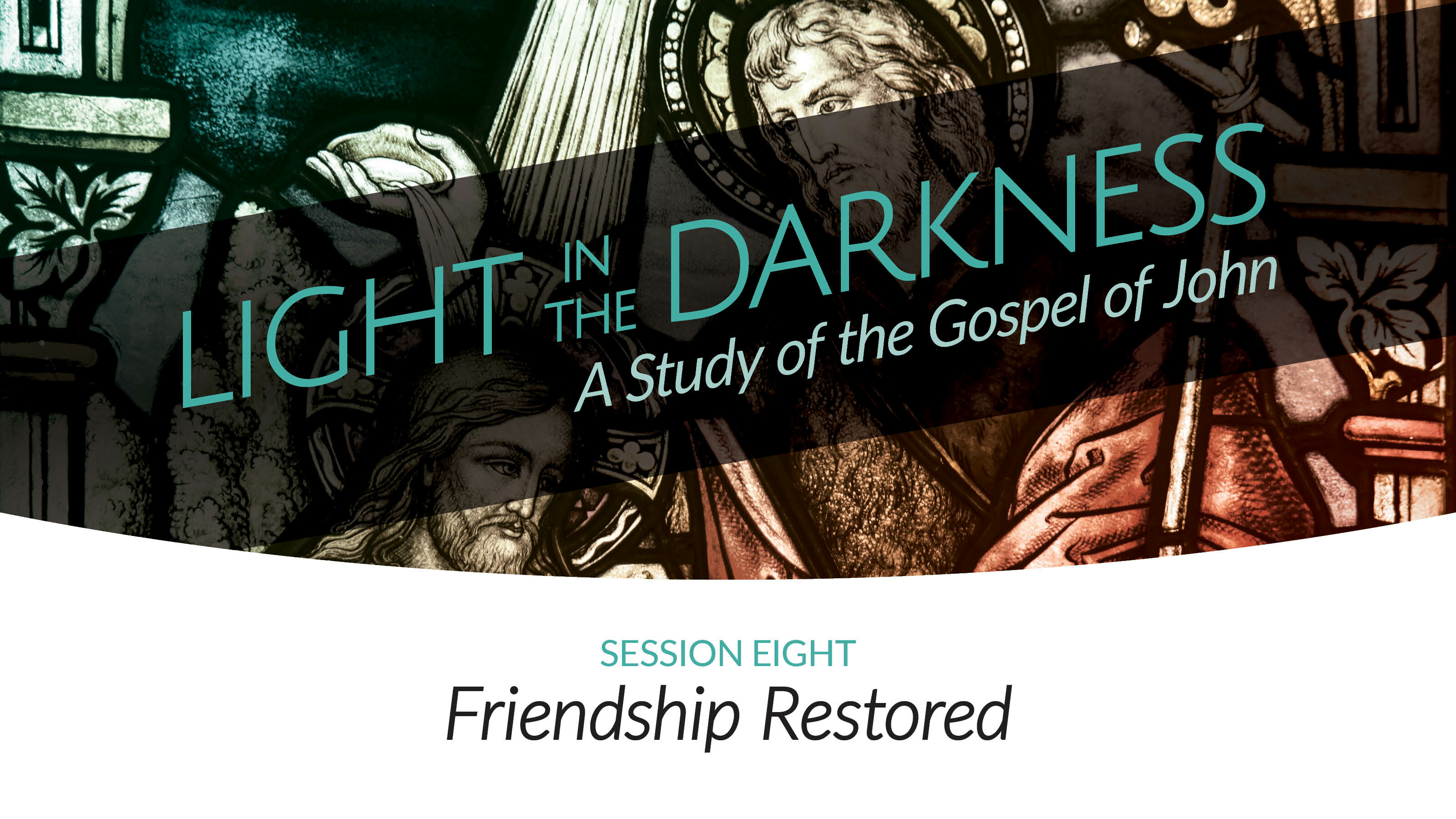Still can't find what you are looking for? Let us know how we can help.
Use the login below to access your InFellowship account.
Need an account?
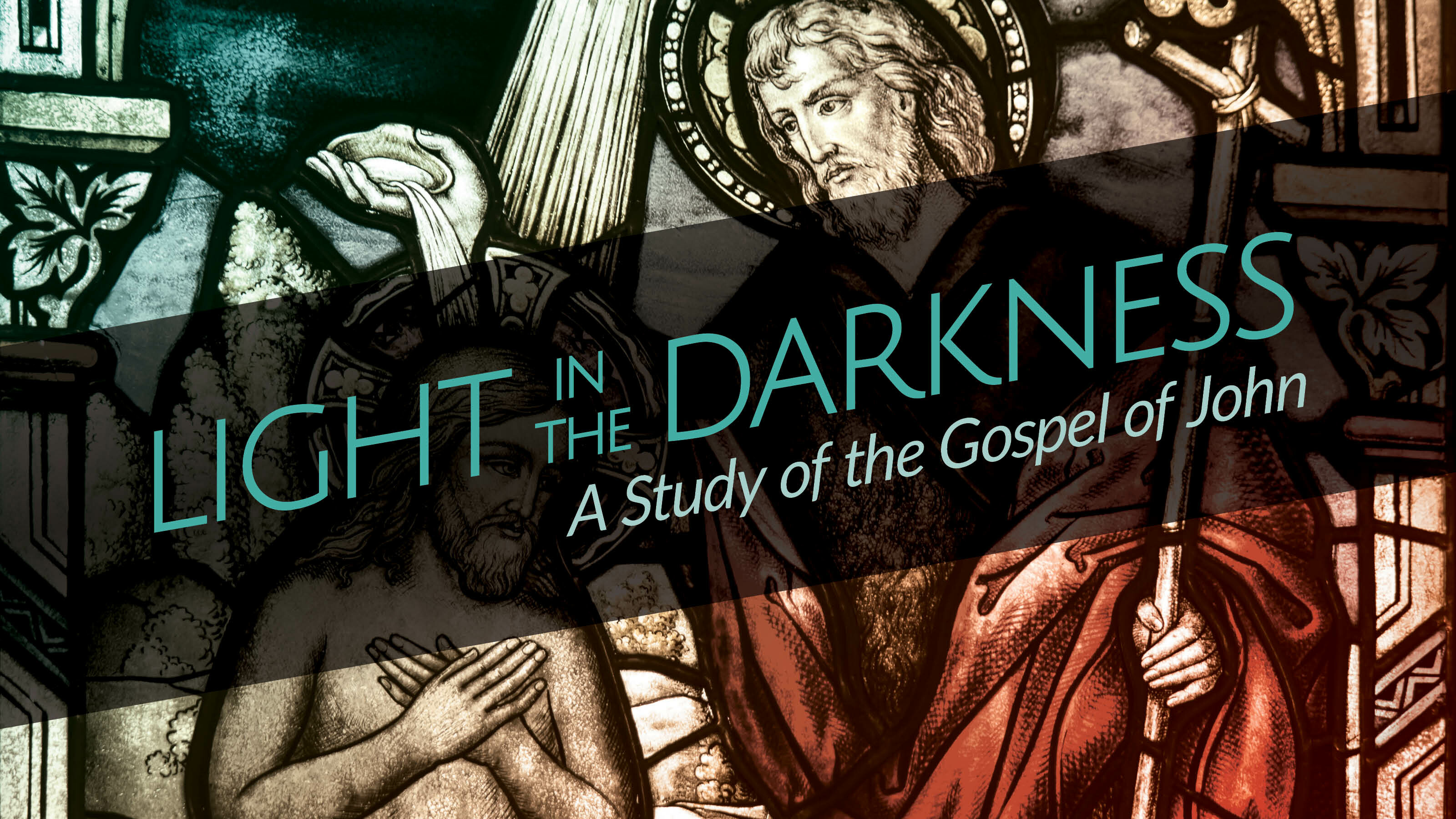
Study Description
It may be listed last among the New Testament gospels, but John has often ranked first among readers for its clarity and vision. John sees and beautifully describes a Light that shines into the darkness, dispels shadows, and brings life to all those who dwell in his rays.
In this study, we reflect on John’s testimony about this Light: who he is and how he brings life and truth to the darkness and falsehood of our lives.
Details
- Length: 8 sessions
- Teachers: The Rev. Dr. Jonathan Bailes
- Leader's Guide: Discussion questions are available for small group leaders.
Access Leader's Guide
Watch the Series
1. Sound Made Sight
The Gospel of John seems entirely unlike the other three New Testament Gospels, and yet it is considered by many the most theologically profound. In this session, we examine what makes John's Gospel unique, beginning with its startling introduction, "In the beginning was the Word ... and the Word became flesh," which has profound implications for God's relationship with us.
2. Exposed by the Light
Jesus enters the world as light enters into darkness. Yet people love the darkness. In John 3 and 4, Nicodemus and the Samaritan woman meet with Jesus, and Jesus exposes their internal darkness and urge them to come to terms with the truth about themselves. We learn, through these examples, what it means for Jesus to be "the Light of the world." Exposure can be very uncomfortable. We can try to avoid it. But in the end, it’s the only way to find true life.
3. Bread That Gives Life
Why do some people continue to follow Jesus and others, even those who seem authentic and enthusiastic in their faith, walk away from him? In this session, we'll discuss why the crowd abandoned Jesus in John 6 and how we, today, can respond faithfully to the life that Jesus offers.
4. The Good Shepherd
Christians, from the days of the early church, have celebrated the picture of Jesus as the good shepherd in countless paintings and writings. What makes this picture so timeless and compelling? In this session, we explore what it means for Jesus to be the good shepherd and how it ought to affect the way we relate to him as his followers.
5. A New Commandment
What was so new about Jesus's new commandment in John 13? It wasn't simply the exhortation to love your neighbor--that command had existed since Old Testament times--but rather the form that love should take. Jesus commanded his disciples to love in the same way that he loved them. It's a remarkable ethical vision; how can we possibly follow it?
6. What Jesus Wants
John 17 records an extended prayer of Jesus on the night he faced crucifixion. We are given, in these words, a window into the soul of Jesus and what Jesus deeply desires for the world: to see and share in his glory. In this session, we examine why glory is so desirable, and why Christ's prayer is cause for our joy.
7. Christ on Trial
In John 18 and 19, Jesus is not the only one on trial. The condemnation of Christ after Gethsemane revealed the hearts and characters of all those present on that day. The Gospel of John is full of such moments: when people attempt to test Jesus, they find themselves on trial instead. What can we learn from this fundamental truth about our savior?
8. Friendship Restored
The eternal Son of God wishes to make his followers into friends. But friendships are built on companionship, trust, and loyalty, all qualities that Jesus's followers fail to show when they abandon him in his time of greatest need. Thankfully, Jesus is not content to let his friends go. He dies for his followers and then, when he is resurrected, he restores them to friendship.
![]()
Find "Christ Church Studies" on Your Podcast Provider
Never Miss a Podcast
Get an email notification whenever Christ Church Plano releases new video and audio content on podcast or livestream. Customize which notifications you would like to receive.
